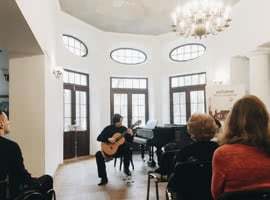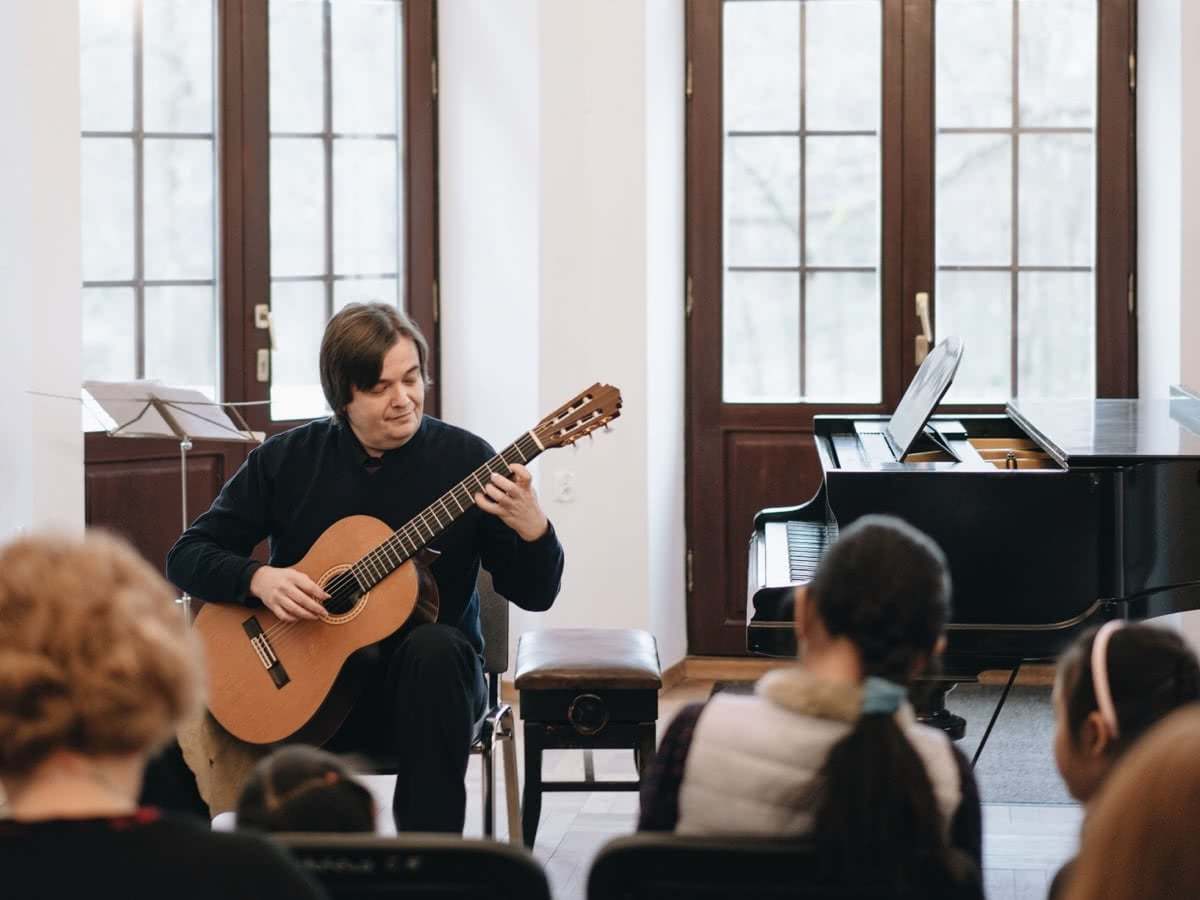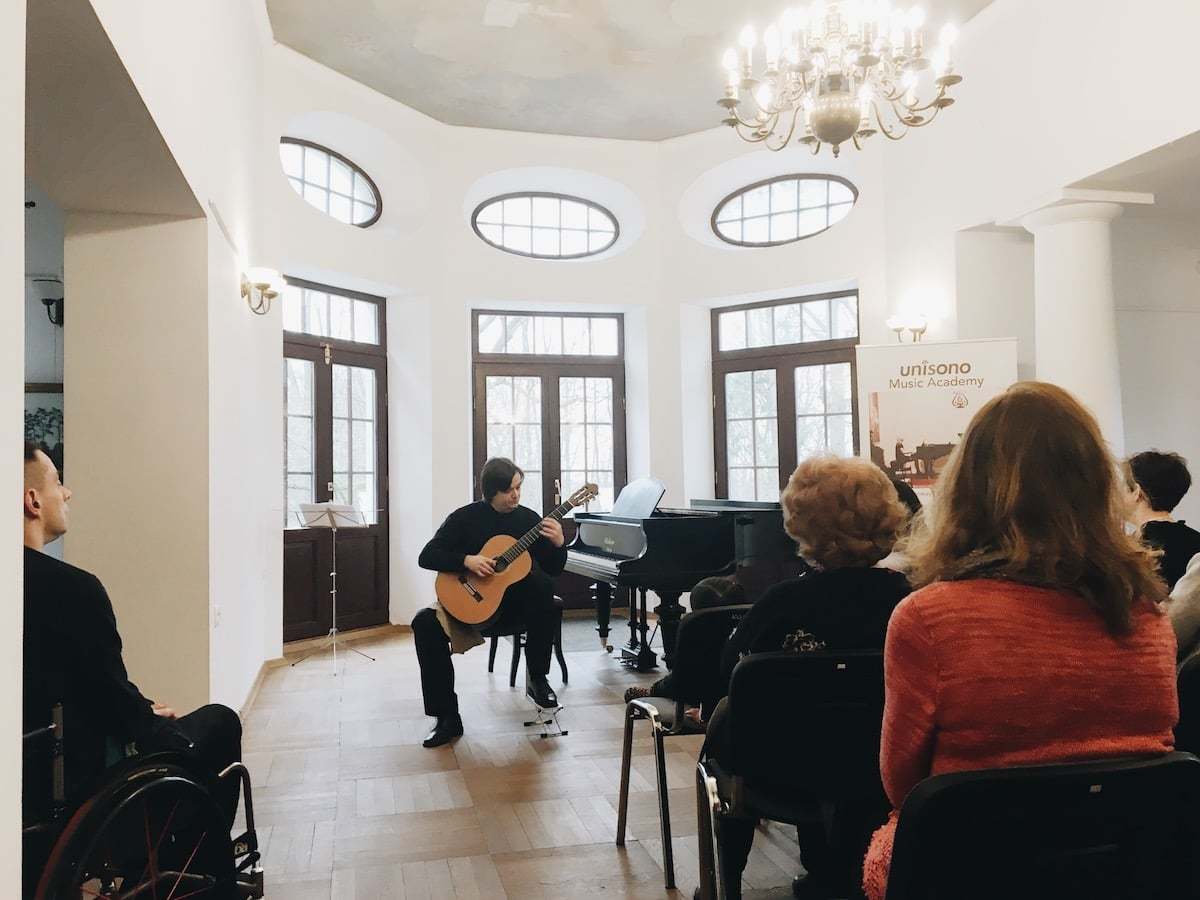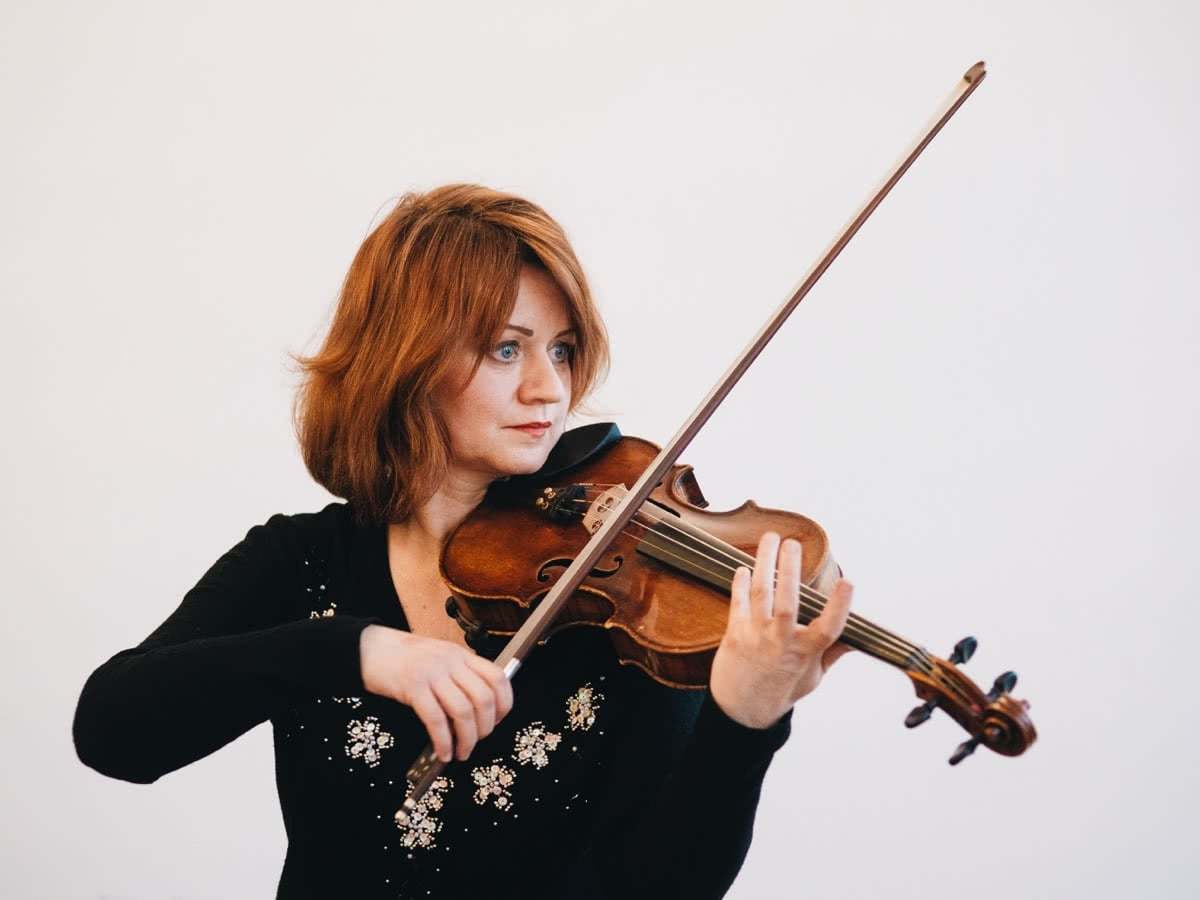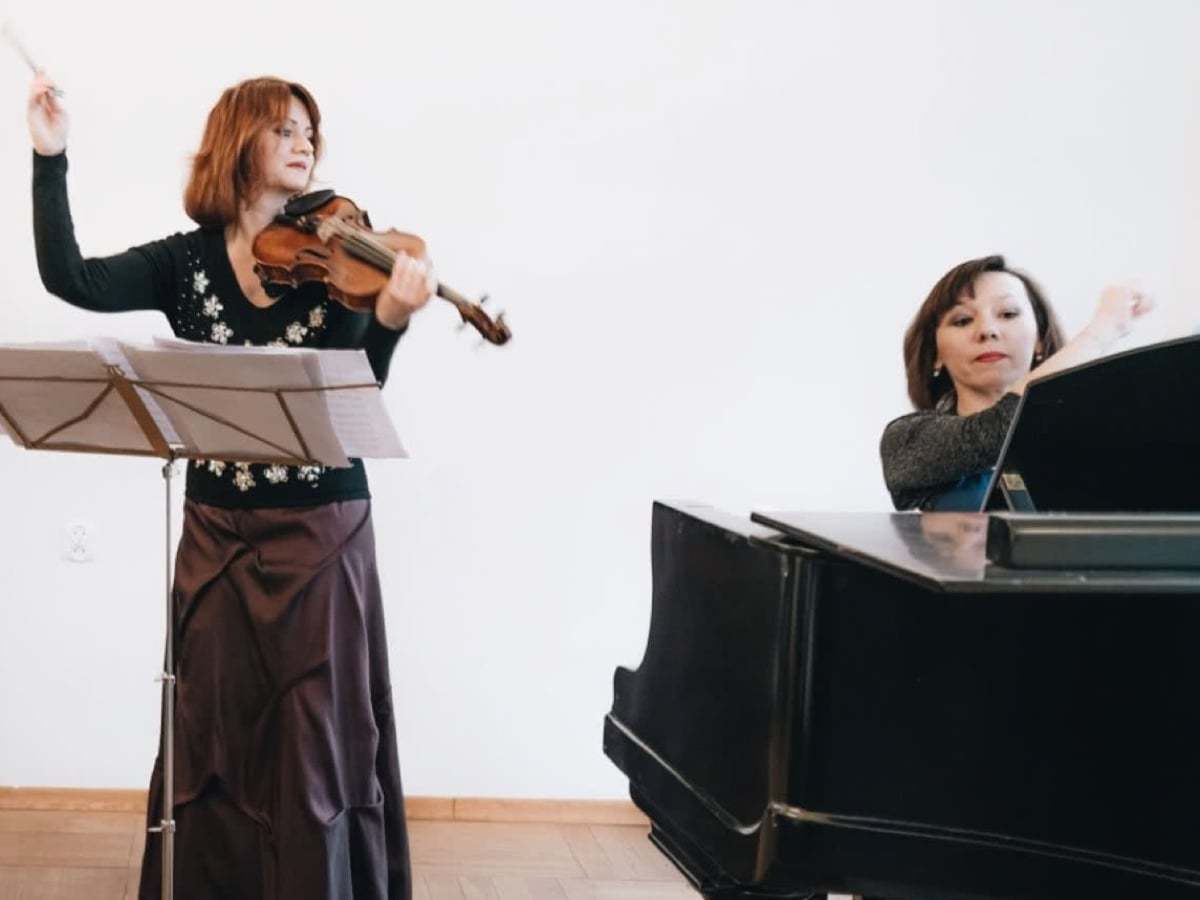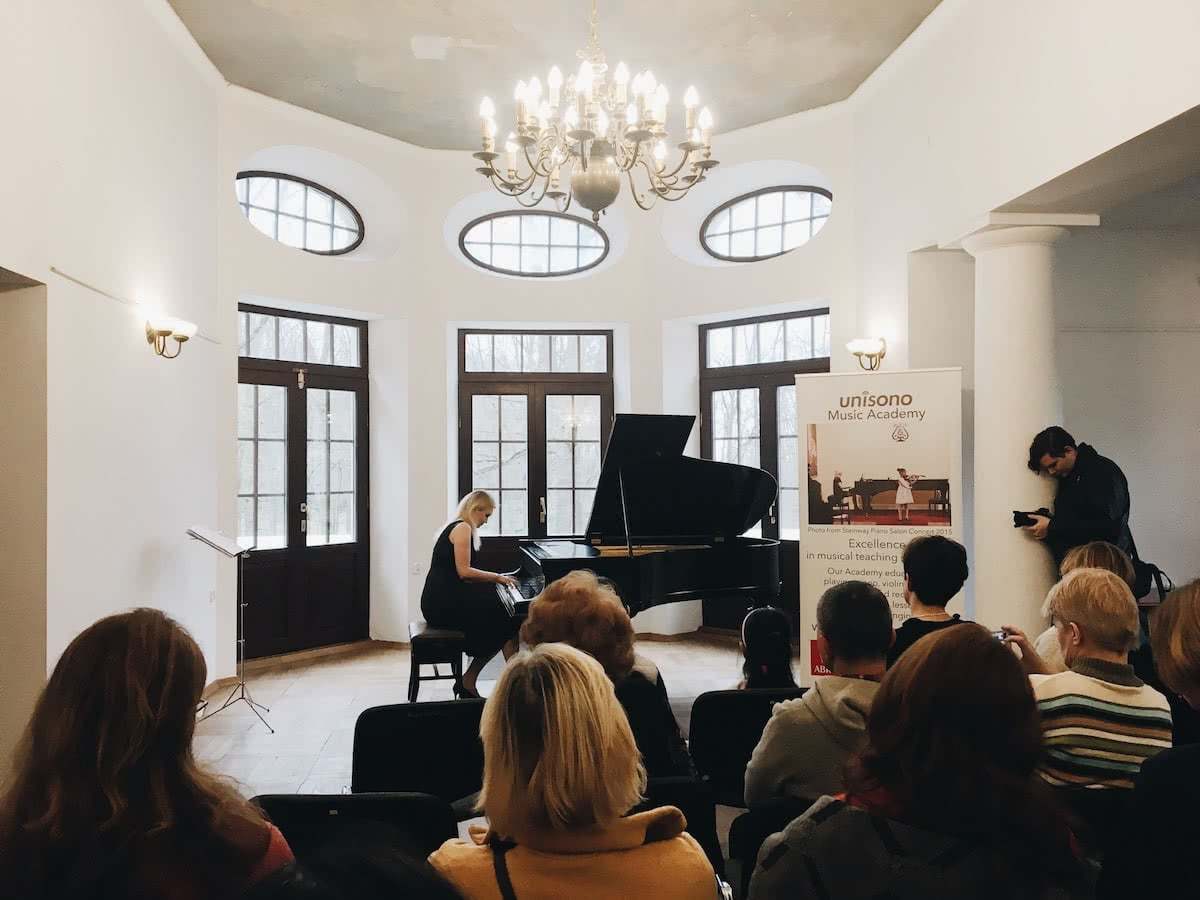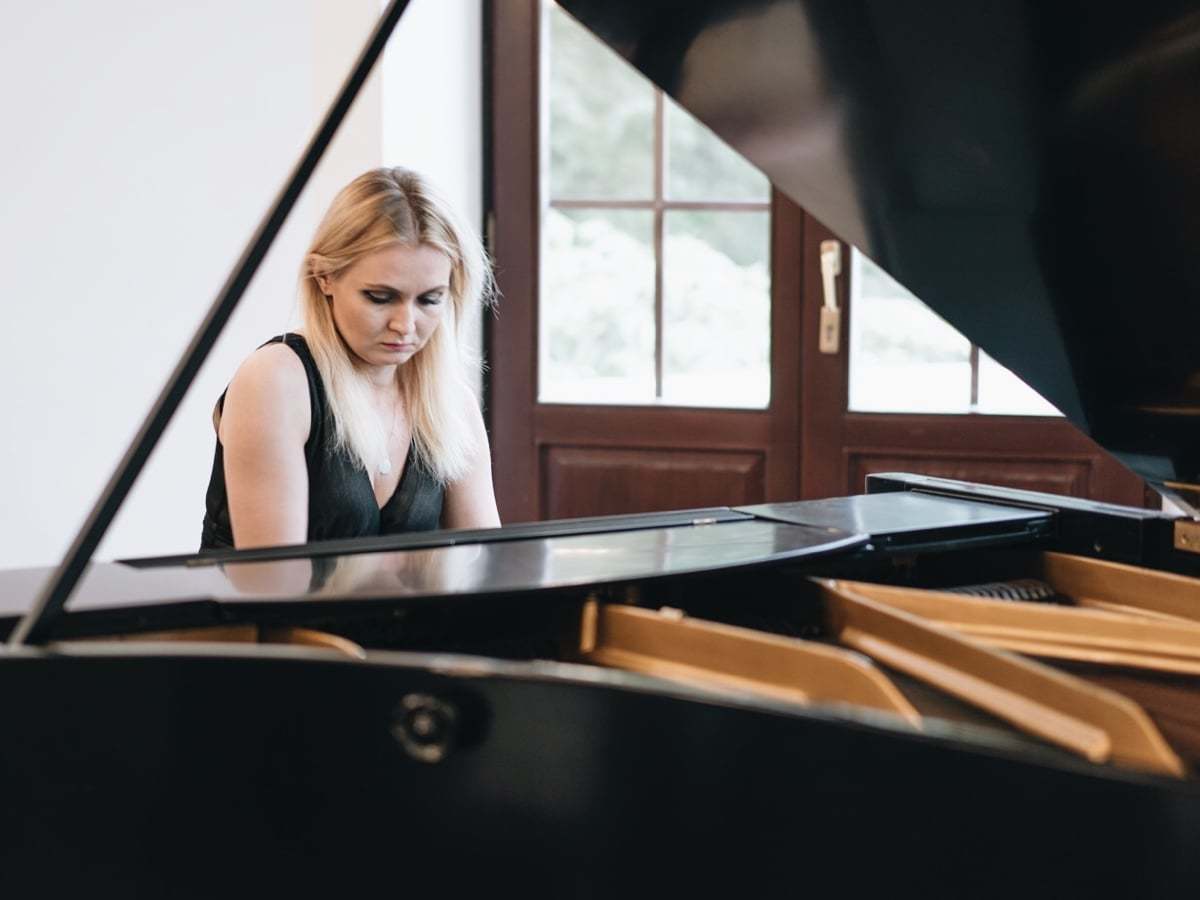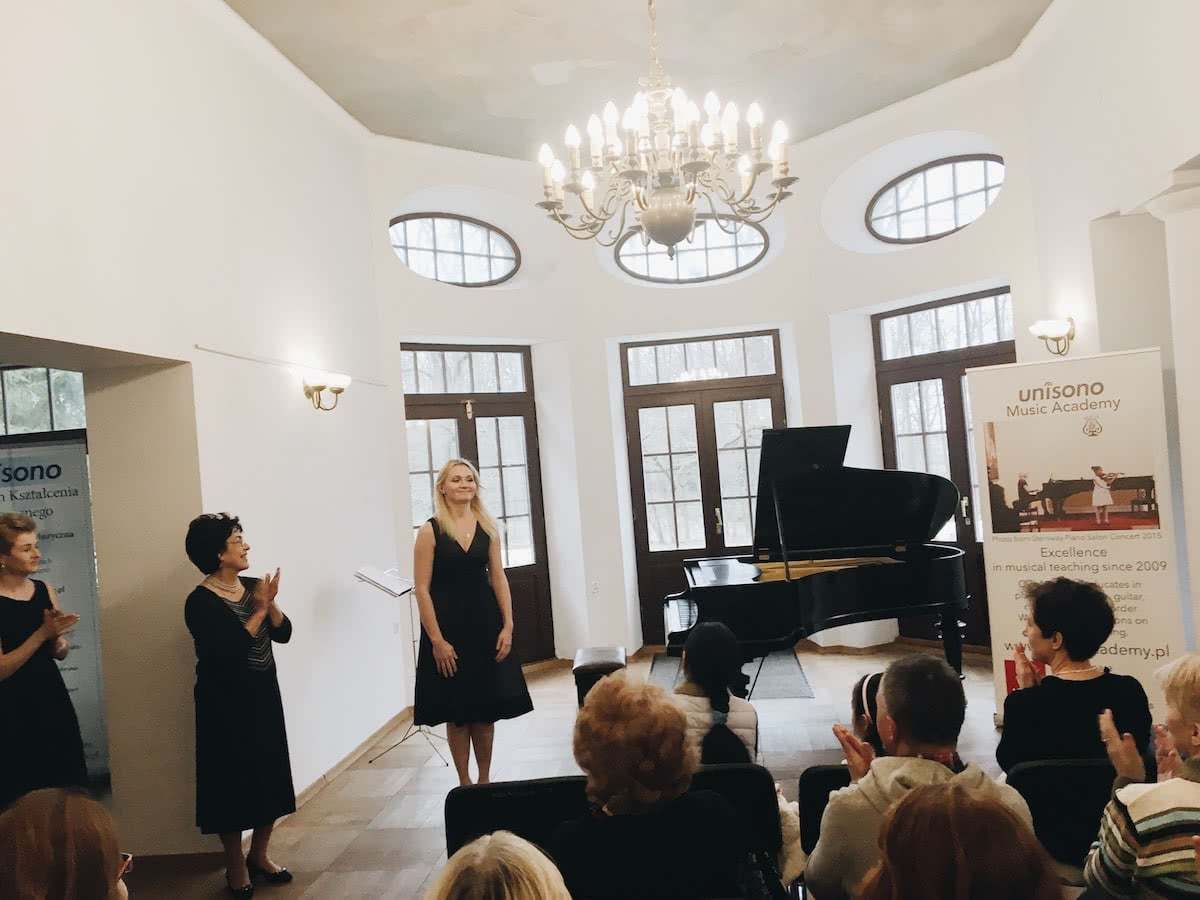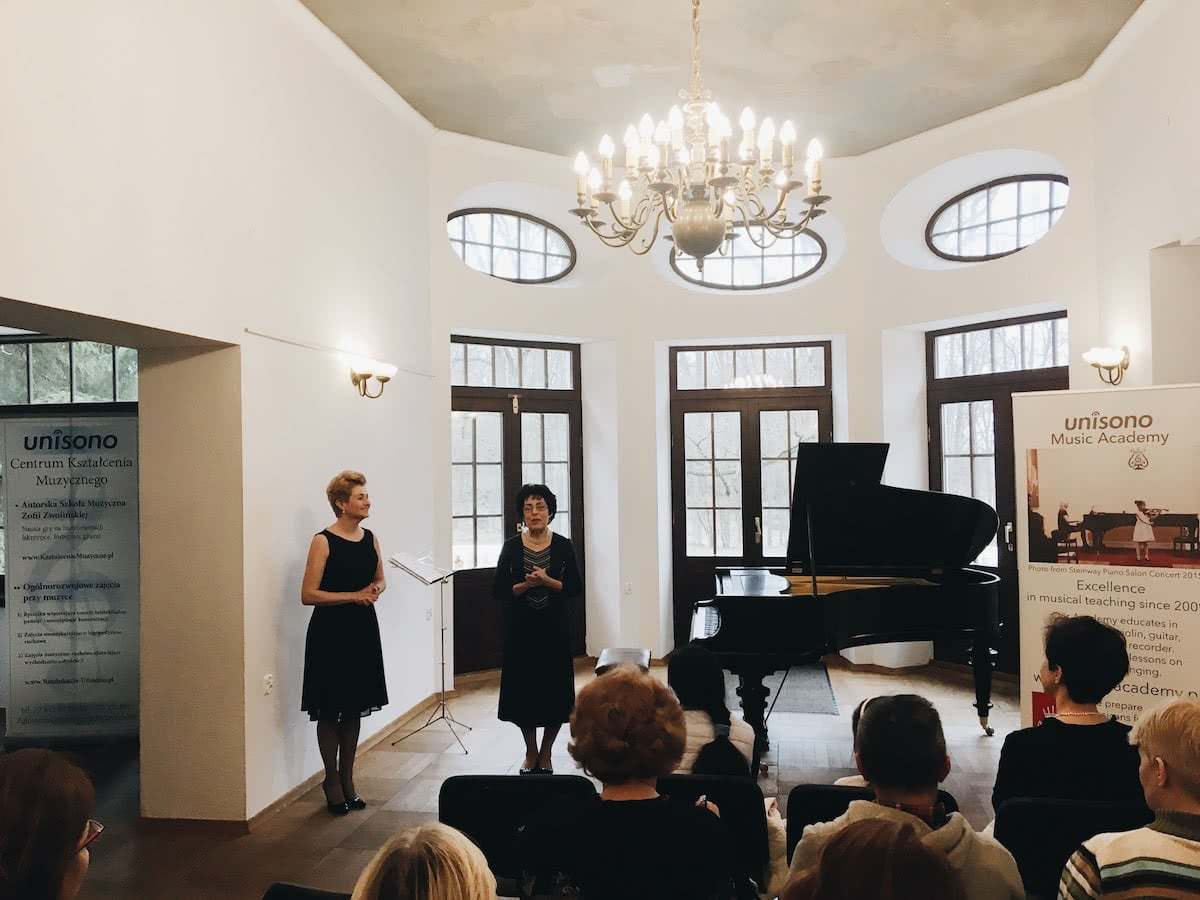Crystal Sounds – 2018 Unisono Musical School Teacher’s Concert. Professors Concert In Botanic Garden Mansion. With our UNISONO Musical School Teacher’s Concert we celebrated the beginning of the New Year 2018. This time our Concert was entitled “Cristal Sounds” and took place on January 7th in the concert hall of the Fangor Manor situated in the beautiful Botanic Garden of the Polish Academy of Sciences in Powsin.
It was the second concert organized and given by our School in the Teacher’s of the UNISONO Musical School program. We were invited by the Director of the Botanic Garden to take part and enjoy the unique climate of the Fangor Manor and the surrounding nature and enrich it with the subtle sounds of classical music.
Among the soloists we have the possibility to listen and enjoy: Krzysztof Komarnicki (guitar), Magda Lewandowska (piano), and a guest artist and former student of Director Zofia Zwolińska – Joanna Okoń (violin) accompanied by Katarzyna Glensk (piano).
Krzysztof Komarnicki (guitar) played:
- Sonata D-Major op. 6 No. 1 by Francesco Molino;
- (Parts of that Sonata: Allegro, Andante, Rondo; Cantabilenon tanto allegro.
Joanna Okoń (violin) and Katarzyna Glensk (piano) performed a series of works entitled: “Landscapes of the Polish Violin Miniatures”:
- Improvisation op. 10 – by Stanisław Lipski;
- Gigue – by Alfred Mistowsk;
- Romance – by Piotr Maszyński;
- Valse Caprice – by Wacław Niemczyk;
- Freilachs – by Joseph Achron;
- Rapsody on Moldaw Themes – by Mieczysławe Weinberg.
At the end of the Concert Magda Lewandowska (piano) performed:
- Fantasia in e-minor op. 49 by Frédéric Chopin.
The audience in the concert hall warmly applauded the soloists for their artistry in musical performance.
The concerts performed by the teachers of our School have unique character . The same can be said about concerts delivered by the students of our School which are performed in the Fangor manor situated in the majestic surroundings of the Botanic Garden of the Polish Academy of Sciences in Powsin / Konstancin.
Fantasia in e-minor op. 49 by Frédéric Chopin.
The Fantasia in e-minor, op. 49, is a solo piano piece composed by Frédéric Chopin in 1841. It is a highly virtuosic and expressive work that showcases Chopin’s signature style and technical prowess. The piece is known for its wide range of emotions, including moments of passion and drama, as well as moments of introspection and contemplation.
Overall, the Fantasia in e-minor, op. 49, is a highly virtuosic and expressive solo piano piece composed by Frédéric Chopin that showcases his signature style and technical prowess. It is a free-form work that is known for its wide range of emotions and its ability to evoke a wide range of moods and feelings.
Music of Francesco Molin
Francesco Molin (1775-1847) was an Italian composer and guitar virtuoso who was active in the late 18th and early 19th centuries. He is known for his works for guitar and his contributions to guitar pedagogy.
Molino is best known for his works for guitar, including his “Concerto for Guitar and Orchestra,” “Guitar Sonatas,” and “Etudes,” which are widely used in guitar pedagogy. His music is characterized by its technical demands, musicality, and expressive melodies, and it is considered an important part of the classical guitar repertoire.
Molino was also a skilled guitar performer and teacher, and he played a significant role in the development of guitar education in the late 18th and early 19th centuries. He is remembered as an important figure in the history of the guitar and as a pioneer in the field of guitar education. His music continues to be celebrated and performed by guitarists around the world.
Music of Joseph Achron
Joseph Achron was a Polish-born composer and violinist who was active in the early to mid-20th century. He is known for his works for violin, orchestra, and chamber ensemble, and for his contributions to Jewish music.
Achron is best known for his works for violin, including his “Violin Concerto,” “Violin Sonata,” and “Etudes,” as well as his orchestral and chamber works. His music is characterized by its expressive melodies, technical demands, and use of Jewish folk and popular elements.
In addition to his work as a composer, Achron was also a skilled violinist and conductor, and he played a significant role in the development of Jewish music in the early 20th century. He is remembered as an important figure in Jewish music and as a pioneer in the use of Jewish folk and popular elements in classical music. His music continues to be celebrated and performed by musicians around the world.
Winter classical concerts are the best
Winter classical concerts can be special for a number of reasons. One reason is that they often take place during the holiday season, which can add to the festive atmosphere of the event. Winter concerts can also be a wonderful way to escape the cold and enjoy some beautiful music in a warm and welcoming setting.
The Crystal Sounds winter classical concert is likely to be especially special due to the high quality of the performances and the attention to detail that goes into the planning and execution of the event. Unisono Music School is known for its commitment to excellence and its ability to bring together talented musicians and skilled professionals to create an exceptional concert experience.
Overall, winter classical concerts can be special due to the festive atmosphere of the holiday season and the opportunity to escape the cold and enjoy beautiful music. The Crystal Sounds winter classical concert is likely to be especially special due to the high quality of the performances and the attention to detail that goes into the planning and execution of the event by Unisono Music School.
Winter is special season in Vivaldi compositions
Winter is indeed a special season in many of Antonio Vivaldi’s compositions. Vivaldi, an 18th-century Italian composer and violinist, is best known for his series of violin concertos known as The Four Seasons. These concertos, which were composed between 1723 and 1725, depict the four seasons of the year through music, with each concerto representing one of the seasons.
The Winter concerto is the second of The Four Seasons, and it is known for its dramatic and evocative depiction of the winter season. It features fast-moving, virtuosic violin lines that are meant to represent the cold and the snow, as well as slower, more contemplative passages that depict the stillness and quiet of winter.
Overall, Winter is a special season in Vivaldi’s compositions, particularly in his famous The Four Seasons violin concertos, where it is depicted through music with dramatic and evocative effect.
What is special about winter classical music?
Winter is a season that transforms the world into a magical wonderland, and classical music has its own enchantment that resonates particularly well at this time of year. The inherent beauty and complexity of classical compositions forge a deep connection with the stillness and serenity that snowfall brings, transforming even the simplest notes into an ethereal experience. Winter also offers composers the opportunity to experiment with new sounds and themes that capture the essence of this unique season.
Winter classical music has an extraordinary ability to inspire introspection and contemplation. The serene melodies seem to reflect the softness of falling snowflakes, while intricate harmonies create an atmosphere akin to gazing at frost-covered trees through a windowpane. With every note played or sung, winter classical music takes us on an emotional journey, allowing us to contemplate our innermost thoughts against a backdrop that resembles nature’s own canvas.
Winter also often inspires compositions that focus on festive occasions such as Christmas or New Year’s Eve. These works embrace joyful rhythms and cheerful melodies that resonate deeply with us at this time of warmth, love and family gatherings. The nostalgic feelings evoked by these seasonal classics serve as vessels that carry cherished memories from one year to the next, passing traditions down through generations.
Ultimately, what makes winter classical music so special is its ability to capture both the serene tranquillity and the joyful festivities that characterise this enchanting season. Whether it is through introspective melodies or toe-tapping celebratory tunes. The beauty of winter classical music lies not only in its ability to capture the essence of the season, but also in its timeless appeal. These compositions have endured through the centuries, resonating with people across generations. They remind us that no matter how much time passes or how our lives change, there are certain emotions and experiences that remain universal throughout the seasons – love, loss, hope. Winter classical music reminds us that amidst the chill of winter’s embrace lies an indomitable spirit, capable of finding warmth even in the coldest moments.
Classical music brings clarity to life
Winter is a season of introspection, and classical music has a unique ability to bring clarity to our thoughts at this time of year. The synchronicity of melody, harmony and counterpoint envelops the listener in a rich tapestry of emotions, taking them on a journey within. In the cold silence of winter, the delicate nuances and powerful crescendos evoke feelings that words often fail to express. It is as if each note holds an answer to the musings of our hearts, paving the way for self-discovery and reflection.
Like snowflakes gently falling from the sky, classical compositions are intricate and fascinating in their construction. The complexity and structure present in classical music are essential to bringing order to our chaotic world. If we listen carefully to a symphony or concerto, it becomes clear that each instrument has its role to play – a reminder that life too requires harmony between different aspects. Through this art form, we learn that silence can be just as powerful as sound; pauses give us space to breathe amidst the cacophony of daily life.
Classical music has a timeless quality that transcends the seasons, but it seems particularly poignant in the winter months, when nature is dormant, yet bursting with potential energy beneath its frozen surface. In its gentleness lies an invitation – an opportunity – to embrace solitude and dig deeper into ourselves as external distractions fade. It offers us moments without haste or frenzy – moments when, even amidst the chill outside, warmth blossoms within.
